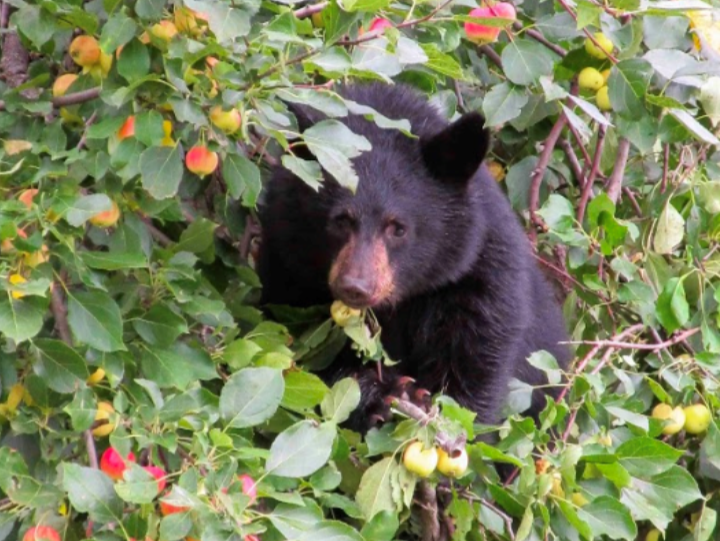Elkford is urging residents to be careful of wildlife, as high levels of bear activity have been reported in the uptown area.
The District says the animals have been particularly active around Balmer Drive and Alpine Way.
According to WildSafeBC’s Bear Hazard Assessment, the Elk Valley is a provincial hotspot for bear conflicts.
“This area is an excellent bear habitat, so the animals are naturally drawn here. However, even when we compare to areas with similar habitats, the conflicts here are exceptionally high,” said Elk Valley Community Coordinator Dianna Haycock.
“Properties that back onto green spaces will see more bear activity, but it’s not uncommon to see bears walk right through the middle of town.”
Elkford officials are reminding residents to take steps to make their properties free of animal attractants.
This could mean securely storing your garbage until collection day, keeping pet food indoors, cleaning your barbecue regularly, removing bird feeders when bears are active and maintaining fruit trees by picking ripe fruit and properly discarding fallen or rotting fruit.
Haycock says bear migration through the valley is not an issue on its own, but it can be problematic if the animals decide to stay in town.
“Where we run into trouble is when the bears are enticed to stick around because they find some garbage, fruit trees or even bird feeders,” explained Haycock.
“When they find those attractants, they will get food conditioned and habituated very quickly. Bears will return to a property where they found an easy meal for years.”
Pet owners should also make sure to keep their dogs on a leash, especially if bears are active.
If bears become food-conditioned, they can become dangerous to humans and will often need to be destroyed.
According to a report from the Conservation Officer Service, 10 black bears were put down in the Elk Valley last year, with one in Elkford, two in Sparwood and seven in Fernie.
Bylaw Enforcement officials say all conflicts with wildlife, including bears, should be reported to the RAPP line by calling 1-877-952-7277 or filling out an online form.
The provincial RAPP line can be used to report dangerous wildlife in the community, wild animals accessing garbage or other human-supplied food, animals that are not easily scared off, someone feeding, harassing or injuring wildlife and dead or injured wildlife.
Be the first to know! Don’t miss out on breaking news and daily updates in your area. Sign up to MyEastKootenayNow News Alerts.




